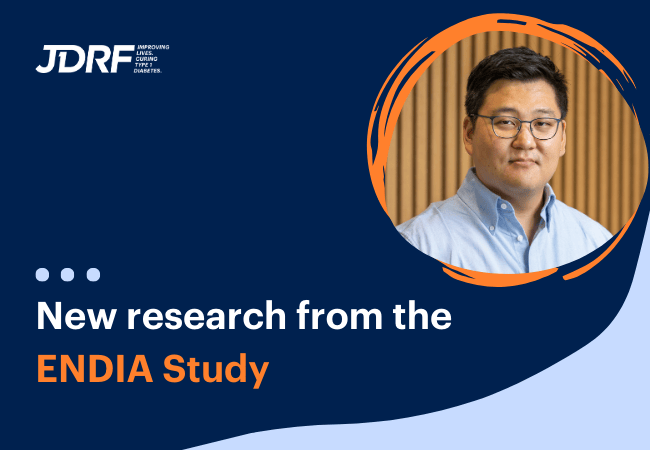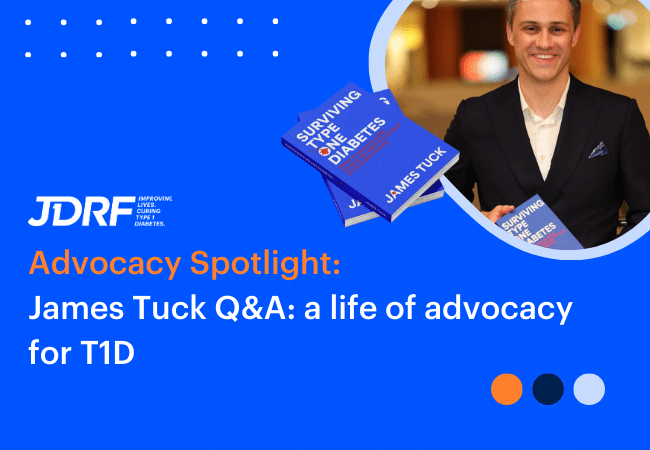T1D Research Roundup: June 2021
Our research roundups bring you the most exciting T1D research stories from around the world – the new advances in treatment, devices and knowledge that are making the biggest impact in the fight to cure, treat and prevent T1D.
This month, the American Diabetes Association held their 81st Scientific Sessions. The world’s top type 1 diabetes scientists gathered (virtually) to present and discuss the latest in T1D research, from new strategies in beta cell replacement to breakthrough results from clinical trials right here in Australia. Here are some of the highlights from this year’s conference:
New closed-loop clinical trial results from Australia
JDRF researcher Dr Sybil McAuley presented new results from her clinical trial of closed-loop technology in people aged over 60. Older adults with T1D are a group with unique health challenges that have not been studied in previous closed-loop trials. Dr McAuley found that closed-loop technology increased time in range for this group and reduced time below range compared with sensor-augmented pump use, particularly overnight. There was a benefit even for those who had a relatively low HbA1c before the trial.
JDRF researchers Prof Alicia Jenkins and Prof David O’Neal also presented a poster with new results from the JDRF Australia Adult Hybrid Closed-Loop Trial. The results showed that characteristics like age, sex, socioeconomic status and prior insulin pump use were not associated with time in range during the trial. The main factor associated with a higher time in range was blood sugar levels prior to the study — those with a higher initial HbA1c were more likely to have time in range of less than 70%.
A repurposed TB vaccine that can reset the immune system
Researchers at Massachusetts General Hospital presented new evidence that their repurposed tuberculosis vaccine could help treat T1D. The team have previously shown that the vaccine can prevent the destruction of pancreatic islets and restore key immune cells. Now, they presented new results from a clinical trial showing that 3 years after receiving the vaccine, people with T1D showed genetic signatures in their immune cells similar to those of volunteers without T1D. This adds strength to the existing evidence that the vaccine can reset, or even restore the immune system in people with autoimmune conditions.
Real-world data on the new Medtronic 770G
The first real-world data on the Medtronic 770G system has been presented, showing promising time in range results. A total of 11,909 people with T1D over the age of 2 contributed data to the study, which showed that 56% of users achieved the recommended goal of 70% time in range. Average time in range for people using the 770G was 70.8%, and time below range was very low (people spent 1.8% of time below 70 mg/dL and only 0.4% of time below 54 mg/dL).
Big advances in beta cell replacement
This year’s conference saw several researchers share exciting updates on beta cell replacement therapy. JDRF T1D Fund-supported company Viacyte presented new results from a clinical trial of their stem cell therapy, PEC-Direct. The breakthrough data showed that beta cell replacement with PEC-Direct lowers HbA1c, increases time in range and results in production of C-peptide (a marker of insulin production by the pancreas). This is the first time that transplanted stem cells have been shown to successfully produce insulin in people with T1D in a clinical trial. Further results are expected from the study next year.
Interested in hearing more about research & clinical trials? Sign up to be a JDRF Game Changer and receive regular updates on the latest T1D research.



